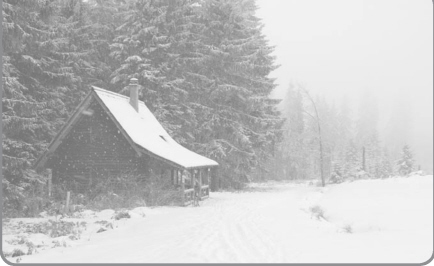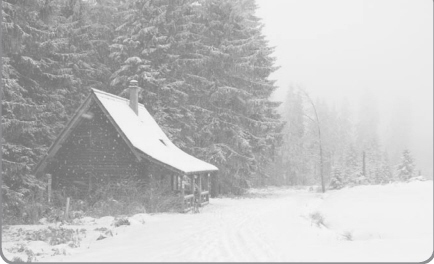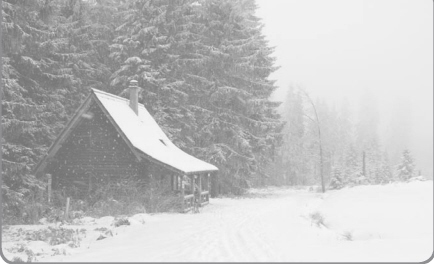Christmas Miracles (6 page)

Bob seemed pleased that there was an explanation for what had seemed to him to be a troublesome aspect of the whole Santa-Claus-down-the-chimney scenario.
“By the way,” his father said, “how about you two going up to Wendy's room to see if she needs any help wrapping presents. Your mother and I will call you when it's time to decorate the tree.”
Bob recalled how he and Ned had raced upstairs to his sister's room. “Wendy had been wrapping presents from our parents to our aunt and uncle,” he said. “She had already finished when we burst into her room to offer our services, so we sat on her bed and talked about what we hoped we would be getting for Christmas.”
Wendy was a year older than the twins, so Bob knew that she was keener in the ways of grown-ups. He told her about their father saying that Santa Claus had magical powers that could transform the chimney into a kind of elevatorâand he asked her if such a thing could be true.
“Hmmm,” Wendy said, thoughtfully. “I've never seen Santa do it, but that must be how it works. Since he's magic, he can do anything, really.”
Once again, Bob recalled, he felt reassured.
“We sat on the bed, looking out the window at the Christmas lights strung across the avenue,” he said. “Suddenly Wendy said, âLook! Look up at the moon!' ”
There, in front of the moon, was a strangely formed cloud that projected a silhouette of Santa's sled so perfect and so clear that Wendy didn't have to explain.
“There it was,” Bob said. “You could see the runners and the curvature of the front of the sleighâand on the back was Santa's bag full of toys!”
Bob remembered how the three of them stared at the silhouette in thrilled astonishment. “You couldn't see the reindeer pulling the sleigh, but there was no mistake
who
it was that we were seeing!”
After the initial shock, the three of them raced down the stairs to tell their parents that they had seen Santa Claus's sleigh silhouetted against the moon, and they begged them to go to the windows to look up at the amazing sight.
“Mother hurriedly ran to a window to have a look, and Dad eventually left his chair to check out the hubbub,” Bob said. “But you know how it is. By the time the grown-ups had arrived at a window, well, you know.”
Their mother offered a sympathetic, “I think I see it.”
“My, my,” said Dad.
“It didn't matter,” Bob Shortz said. “I knew what we had seenâand nothing could change the magic of Christmas and Santa Claus for me that year or ever since.”

F
ive months after the start of World War I, just after midnight on Christmas morning, the vast majority of German soldiers declared a Christmas truce in the hostilities between themselves and those of the Allied troopsâthe Russian, French, and British. Regimental bands began to play Christmas carols and the men raised their voices in joyous celebration of the Holy Night when the Prince of Peace was born.
The Allied soldiers were understandably suspicious about the shouts of “Merry Christmas” that they heard directed at them from the German trenches. Perhaps they had snipers lined up just waiting for a curious Tommy, Ivan, or Frenchy to peek his head above the trenches.
But at the end of each hymn or cheerful carol they heard the German boys from Kaiser Bill's army calling out something about a Christmas truce. The men in the Allied trenches checked with their officers, but none of them knew anything about a truce having been declared for the holidays.
At dawn's first light on Christmas morning, the German troops rose up out of their trenches, set down their weapons, and began to walk across “no-man's land,” singing carols and shouting out, “Merry Christmas,” in French, Russian, and English, as well as their native German. From all appearances, from everything the Allied officers could see through their field glasses and from what the soldiers were able to witness from their frontline observation posts, all the Germans appeared to be without rifles or any kind of weaponry whatsoever.
Soon the Allied soldiers crawled up out of their trenches and walked toward the Germans who were so openly and trustfully celebrating Christmas. The men shook hands, wished each other a blessed Christmas, and exchanged gifts of cigarettes and food. Later, they sang hymns and carols, and those of the same faith worshipped together. Some accounts of the Christmas truce even state that opposing sides played a good-natured, but rousing, game of soccer. The remarkable unofficial “time-out” that was declared by the combat soldiers without any thought of obtaining permission from their superiors lasted for two or three days.
Sadly, the Christmas truce of 1914 was probably one of the very last examples of old-fashioned chivalry in modern warfare. Within another few weeks, the first great technological war would begin slaughtering human beings on a scale previously undreamt of in any military officer's most fevered nightmare of destruction. The employment of poison gas against the men in the trenches, the aerial bombing of cities and civilians beyond the frontlines, the onslaught of armored tanks crushing men and smashing walls, machine guns mowing down ranks of soldiers, aircraft swooping down from the skies and strafing troops on the groundâall of these horrors and more would make the notion of another Christmas truce during the war an impossible dream. But the 1914 Christmas miracle created by the common foot soldiers' declaration of peace and goodwill toward their fellow comrades-in-arms will live forever in memory as a triumph of the indomitable human spirit over the fatal disease of war.

D
uring the push to Berlin during the latter stages of World War II, Bryan Potter and a group of other bone-weary GIs were quartered in a brick farmhouse and told to get a good night's rest. The order was as unnecessary as telling a starving man to eat everything on his plate. The men were cold and exhausted in the bleak December of 1944, and although there was little to burn in the fireplace and the antiquated kitchen stove, any warmth at all was greatly appreciated.
They had just finished a sparse, but somehow comforting and filling meal, when one of the men started tapping his fork on his metal mess kit.
“Fellas,” he said, when he had everyone's attention. “Do you know what today is?”
“Don't tell us it's your birthday, Skeeter,” Potter said with a sigh of mock disappointment. “I am so sorry, I wasn't able to go shopping for a present. Every time I did try to go into town to buy something, those nasty Nazis started shooting at me.”
“Can it, Potter,” his buddy replied. “It's the eve of the birthday of someone a whole lot more important than this dogface GI.”
And then the realization seemed to strike everyone in the crowded kitchen at the same time. It was Christmas Eve.
“For several moments, the room was silenced as we all became lost in our own thoughts of Christmas back home,” Potter said.
“We were all somewhere else in time and space. Some of us were probably remembering a special Christmas Eve at home with Mom and Dad, sitting around the dining room table after a big meal, listening to Bing Crosby sing âWhite Christmas' on the radio, all of the kids just waiting to tear into the presents under the tree. Or the last Christmas that we held our wives or sweethearts in our arms before we enlisted. We all wanted to be back home with our loved ones, not crowded into some German farmer's deserted home with the enemy all around us.”
One of the men shifted uncomfortably on the hard wooden bench, then spoke up before he lost his nerve. “I think we should do something to observe Christmas Eveâyou know, like singing a Christmas hymn. Something like âSilent Night' or âLittle Town of Bethlehem.' ”
“If he had been expecting ridicule from the hardened, tough men around him, he received none that cold and lonely Christmas Eve far away from our homes,” Potter recalled. “Softly at first, as some of us struggled to remember the words, we began singing âSilent Night.' Then as we got more into the spirit of the hymn, our voices became stronger and stronger until the rafters of that old farmhouse were reverberating. By the time we got to the third verse, most of us were just humming along, but even that had a good Christmas sound to it.”
Then, suddenly, someone carrying a bright light slammed open the kitchen door and shouted: “Everyone out! A mortar shell is about to hit!”
Potter and his buddies scrambled for the door, ran several yards, then threw themselves headlong on the frozen, snow-packed German terrain.
Seconds later, the demolished farmhouse erupted in a fiery explosion and began to rain pieces of brick down on them. Nazi mortar fire had scored a direct hit on their temporary sanctuary.
“It was a good thing for us that even though we were bone-tired, we simply reacted on our training and our war-honed instincts,” Potter said. “None of us thought to stop to ask the stranger with the bright light just how he knew that a mortar shell was about to hit the specific target of our particular farmhouse.
“Whoever the guy was, he didn't burst in among us and shout, âHeads up! The Jerries are going to start shelling!' He told us to get out because a round was about to hit us. That statement required special and specific knowledge, and if any of us had stopped to interrogate the fellow concerning the source of such intelligence, none of us would have survived the direct hit.”
Potter and his buddies spent the rest of the night in the ruins of a barn, huddled around a sheltered fire. One of the men commented that Christmas Eve was the perfect night to sleep on a pile of straw near mangers and cattle pens.
“Later, when some of us had a chance to talk about the incident, a couple of the guys were already calling it a miracle,” Potter said. “After discussing it at great length, we all agreed that the man who burst into the farmhouse was not carrying a bright light, he was the light.
“When we compared our collective memories, we concluded that the stranger was surrounded by a brilliant kind of illumination. We were convinced that an angel saved our lives on Christmas Eve in 1944 by warning us to get out of the farmhouse immediately before the mortar shell hit us.”

W
hen Don Checketts was a nineteen-year-old Marine stationed at Campo de Marte in Managua, Nicaragua, he became so homesick at Christmas for his family back in Ogden, Utah, that his wish to be able to be two places at once came true. A Christmas miracle enabled Checketts to visit his family in Utah and remain physically on duty at the Marine base at the same time.
According to Don H. Checketts's story in the May 1968 issue of
Fate
magazine, mail call on December 2, 1929, brought him a long, anguished letter from his mother that described in detail her great heartache at their being separated by so many miles during the Christmas season. She wrote that she would do anything if she might see him, if only for a few moments.
Checketts became very depressed by the sorrowful tone of his mother's letter, and he went to his bunk that night wishing that there existed some means by which he might establish instant communication with his mother and somehow relieve at least a portion of her grief.
